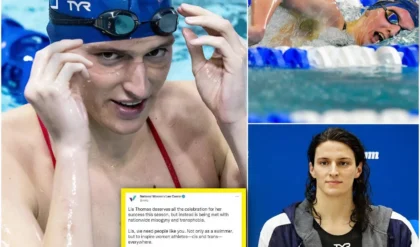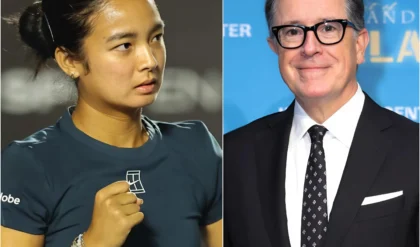The global swimming community was rocked this week when Ben Proud, one of Britain’s most decorated sprint specialists and a former world champion, announced he would leave traditional swimming behind to participate in the Enhanced Games. The competition, launched as an “alternative” to the Olympics, has been criticized since its inception for permitting athletes to openly use performance-enhancing drugs. By aligning himself with this controversial project, Proud has set off a chain reaction of debate, outrage, and existential questions about the very definition of sport.
Proud, who has long been celebrated for his explosive speed in the 50-meter freestyle and butterfly, defended his decision by claiming that the Enhanced Games represent the “future of human performance.” According to sources close to the swimmer, he sees the event not as a betrayal of swimming traditions but as an opportunity to explore “the full potential of the human body without outdated restrictions.” While Proud has not directly admitted whether he plans to use doping himself, his move implicitly endorses a system that many critics argue undermines fairness, health, and integrity.

The backlash, however, was swift and severe. Aquatics GB, the national governing body for swimming in Britain, condemned the decision in a strongly worded statement, stressing that Proud’s legacy as a world champion would now be “forever overshadowed by association with a competition that celebrates cheating.” UK Sport echoed the criticism, describing the Enhanced Games as “a reckless and dangerous initiative that risks the health of athletes and destroys public trust in sport.”
Perhaps the most cutting criticism came from American star Caeleb Dressel, a multiple Olympic gold medalist and one of the most respected figures in international swimming. Visibly angry, Dressel did not mince words when asked about Proud’s announcement. “This is not sport,” he said bluntly. “It is a blatant betrayal of the sacred values we have defended for decades. Every medal I’ve ever fought for, every ounce of training, every sacrifice we all make as athletes – all of that becomes meaningless if we turn sport into a laboratory experiment fueled by chemicals.”

Dressel’s words resonated with athletes across the globe, many of whom expressed their dismay on social media. Fellow Olympians accused Proud of “selling out” and “turning his back on the swimming family.” Some suggested that his decision would damage the morale of younger swimmers who once looked up to him as a role model. Others argued that the Enhanced Games, despite their promises of pushing human limits, carry grave risks not only for competitors’ health but also for the credibility of all sports.
Yet amid the storm of criticism, a small but vocal minority of supporters praised Proud’s decision as “courageous.” Advocates of the Enhanced Games insist that modern anti-doping rules are hypocritical, claiming that widespread use of enhancement already exists in secret. By legalizing and regulating doping, they argue, competitions can become safer and more transparent. To them, Proud’s announcement is a sign that elite athletes are ready to challenge the status quo.

Still, the overwhelming tone from the sporting establishment remains one of anger and disappointment. Critics warn that Proud’s move could set a dangerous precedent, encouraging younger swimmers to consider shortcuts instead of discipline and hard work. For many, the Enhanced Games represent a dangerous fracture in the values that have defined international competition since the birth of modern sport.
As the dust settles, one thing is certain: Ben Proud’s name will now be tied not only to world championship glory but also to one of the most divisive controversies in recent sporting history. Whether the Enhanced Games succeed or collapse under public pressure, his decision has already ignited a debate that reaches far beyond swimming – a debate about fairness, integrity, and the true meaning of competition.





